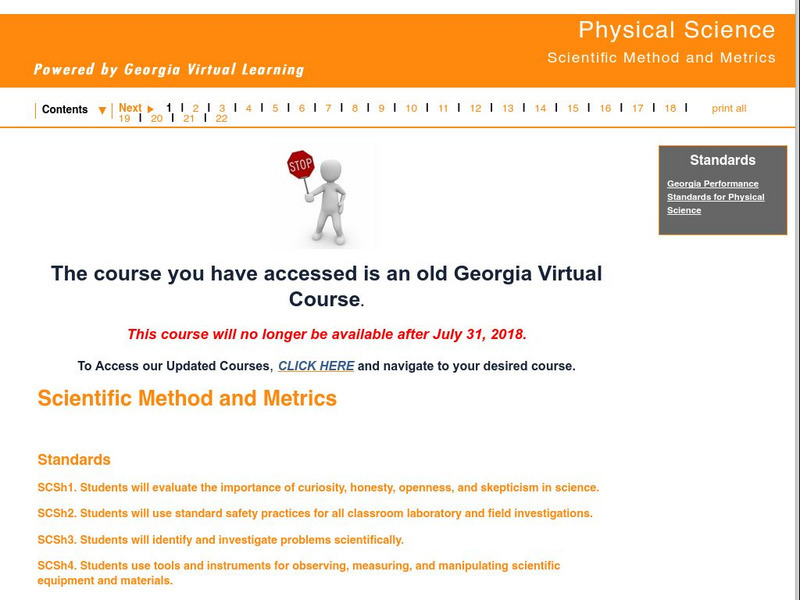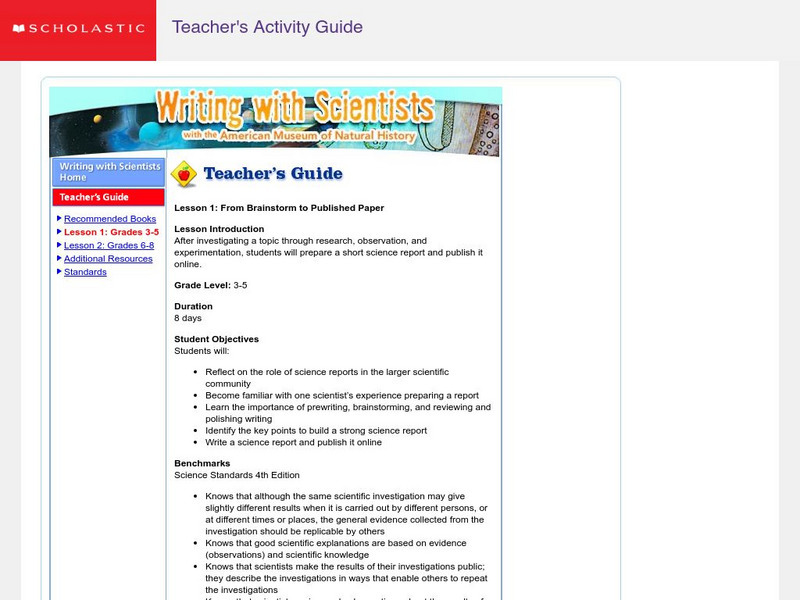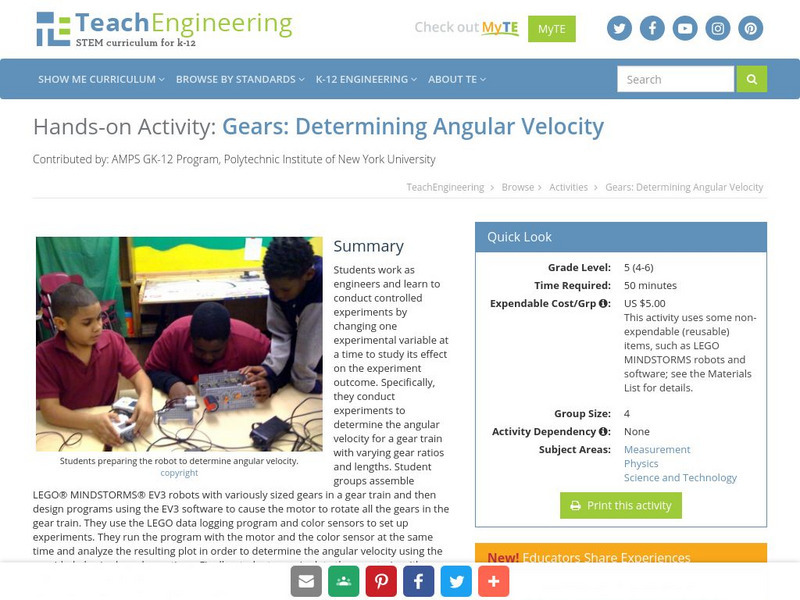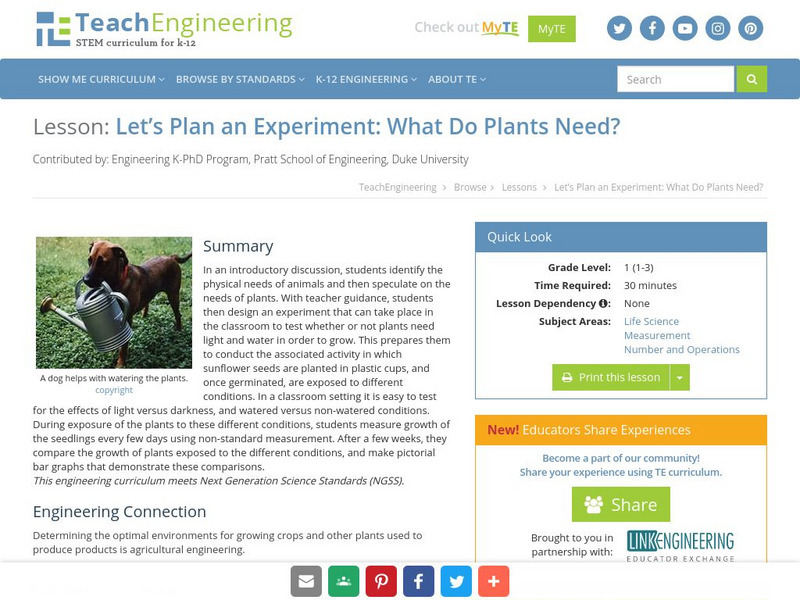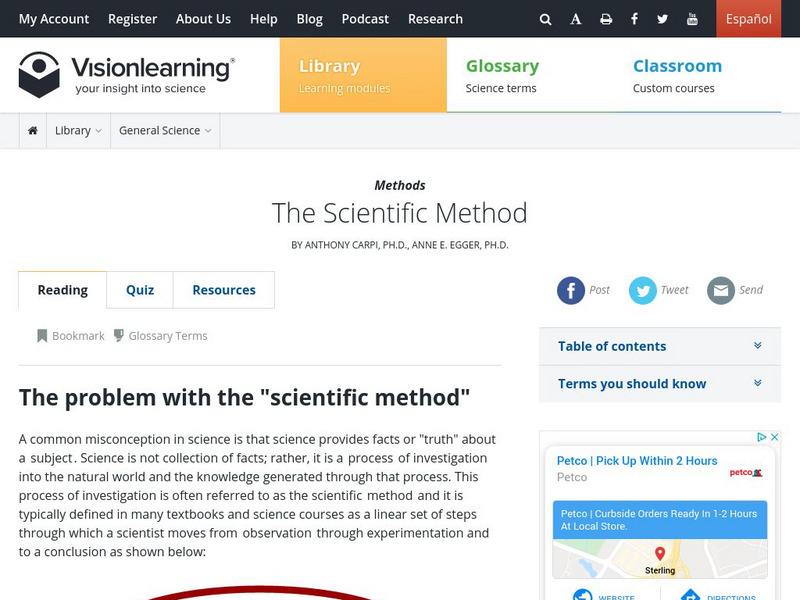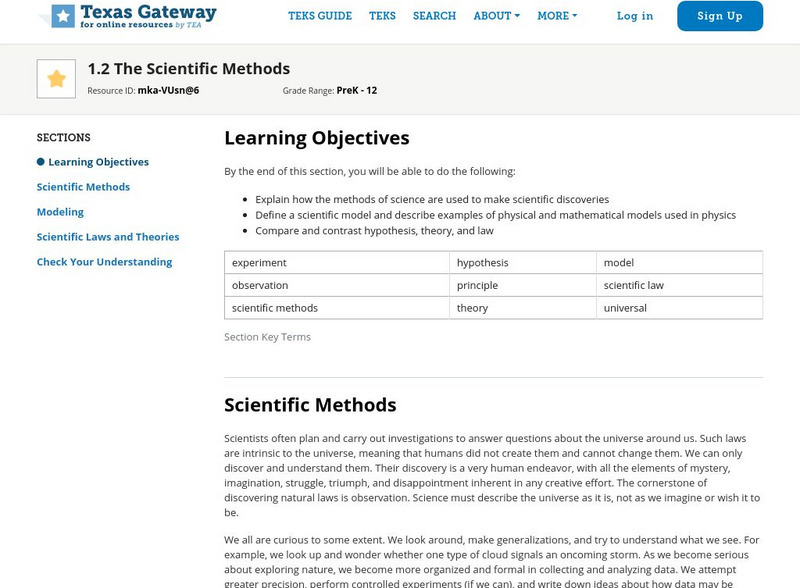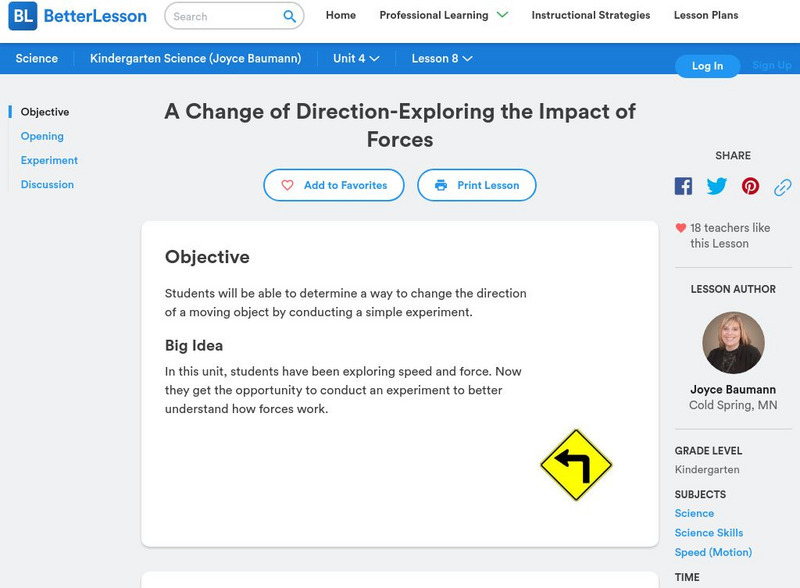Cyberbee
Cyberbee: Who Dunnit?
If you are a crime scene investigation (CSI) fan, then you will love this site! You get to be the detective by examining the evidence, viewing the crime scene, dusting for fingerprints, interviewing the suspects, and solving the crime.
City University of New York
Scientific Method and Probability: Interactive Activity
This interactive lesson begins with the basics and carries through to methods of data analysis, all interactively. Supporting material is excellent.
Georgia Department of Education
Ga Virtual Learning: Physical Science: Scientific Method and Metrics
Students have the opportunity to review the scientific method, become familiar with vocabulary terms associated with scientific investigation, and learn about real-world scientific examples where the method is used.
Shodor Education Foundation
Shodor Interactivate: Spinner
This interactive learning activity allows students to explore experimental and theoretical probabilities using a spinner. Teacher resources are included.
Science and Mathematics Initiative for Learning Enhancement (SMILE)
Smile: Solubility of Gases in Liquids
Lab activity where students determine the relationship of pressure and temperature on gas solubility.
Science Buddies
Science Buddies: What Goes Up, Must Come Down
Standing on a balcony near the top of the 179-foot tall Tower of Pisa, a young scientist dropped two iron balls into the crowd below. The scientist, young Galileo, was not trying to knock his fellow professors on the head, but was trying...
Science Education Resource Center at Carleton College
Serc: Investigating the Rock Cycle: Looking at Similarities and Diff in Rocks
In this activity learners will be given three rocks representing the three main rock types in the rock cycle. They will make observations on those rocks and develop a hypothesis on how each rock formed. We will meet as a class and...
Vision Learning
Visionlearning: Research Methods: Experimentation in Scientific Research
An explanation of scientific research using variables and controls.
Harvard University
Harvard Smithsonian: Everyday Classroom Tools
The focus of this series of lessons is to engage students in an exploration of the world around them. The emphasis is on inquiry as students learn about the earth, sun, light, shapes and more.
Scholastic
Scholastic: Writing With Scientists
After students investigate a topic through research, hypothesizing, observing, and experimentating, teachers can use this lesson to help their students prepare short science reports and publish them online. The Writing with Scientists...
Other
Kids Page: United States Patent and Trademark Office
This source allows users to learn all about inventions and patents, play some fun games, and enter a contest.
TeachEngineering
Teach Engineering: Gears: Determining Angular Velocity
Students work as engineers and learn to conduct controlled experiments by changing one experimental variable at a time to study its effect on the experiment outcome. Specifically, they conduct experiments to determine the angular...
TeachEngineering
Teach Engineering: Who Needs What?
The teacher leads a discussion in which young scholars identify the physical needs of animals, and then speculate on the needs of plants. With guidance from the teacher, the students then help design an experiment that can take place in...
TeachEngineering
Teach Engineering: Population Growth in Yeasts
This lesson is the second of two that explore cellular respiration and population growth in yeasts. In the first lesson, students set up a simple way to indirectly observe and quantify the amount of respiration occurring in...
NASA
Nasa: Jsc Home Page
NASA's Johnson Space Center is located near Houston, Texas and was constructed as "the primary center for: design, development testing of spacecraft and associated systems for human flight; selection and training of astronauts; planning...
CK-12 Foundation
Ck 12: Biology: Science Experiments
[Free Registration/Login may be required to access all resource tools.] Covers the scientific experimental design.
Vision Learning
Visionlearning: General Science: The Scientific Method
Instructional module focusing on the scientific method as a process of investigation into the natural world rather than a linear collection of facts. Site also includes an interactive practice quiz and links relating to the topic.
Annenberg Foundation
Annenberg Learner: Against All Odds: Experimental Design
Video program explains the difference between observation and experiment and the principles of experiment design. Lesson draws on real-life example of heart disease study and a double-blind experiment. [28:39]
Pennsylvania State University
Penn State Lehigh Valley: Scientific Investigation
This site presents a general overview of scientific investigation. Content explores what scientific investigation is, as well as the scientific method (the guidelines followed by all scientists).
Center for Innovation in Engineering and Science Education, Stevens Institute of Technology
Ciese Collaborative Projects: Down the Drain: How Much Water Do You Use?
How much water do you use everyday? Find out in this engaging investigation, where you compare your water usage with your classmates and other people around the world. An exploration filled with lots of math and science that students are...
PBS
Pbs Learning Media: When Does 50 50 Become 50 50?
In this video segment from Cyberchase, Bianca goes on a quest to find out if a coin toss really is a 50-50 proposition.
PBS
Pbs Kids: Dragonfly Tv Try This!
A collection of simple experiments your students will enjoy! Each activity only requires a few household items, and will certainly spark the creativity in young scientists!
Texas Education Agency
Texas Gateway: Physics: The Scientific Methods
By the end of this section, you will be able to explain how the methods of science are used to make scientific discoveries; define a scientific model and describe examples of physical and mathematical models used in physics; and compare...
Better Lesson
Better Lesson: A Change of Direction
Students will make predictions and conduct an experiment using marbles to figure out what types of things can cause a moving object to change direction. Included is a video of the lesson in action, pictures, discussion questions, and a...




